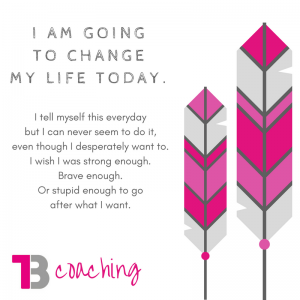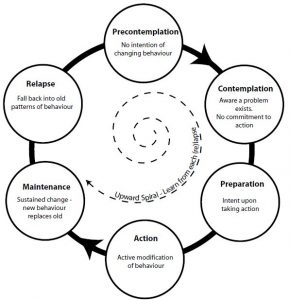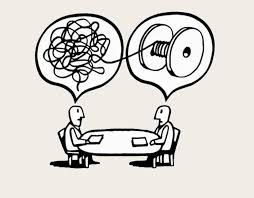Being a good human – It’s an inside job
My take on coaching – what it is (really) and what is really isn’t. Why I think it works and why I believe in it.
What is a “coach”?
If you’re thinking Football Coach, this article probably isn’t what you were searching for. I’m talking about the kind of coach that is a support and guide, voice of wisdom and person who holds a space for you while you figure out what you want, then walks alongside you on that journey.
A coach is someone who cares that people create what they say they want and that they follow through when they choose. The coach is there to hold people accountable and keep them moving forward toward their dreams and goals. Ultimately, the coach is there to help people live lives of meaning and purpose. (1)
Coaches don’t tell you what to do. They don’t provide you with the answers or offer you solutions. There are no prescriptions or magic wands. There are a lot of hard questions. Coaches are expert question-askers and even better listeners.
They aren’t there to make it easy for you, nor to make it any harder – they’re there to help you create lifelong behavioural change. They are change experts and their job is to help you maximise your potential.
Change is hard
Coaching in this context is an increasingly popular thing because change is hard. Regardless of the change you are trying to make happen, it’s hard. Just ask anyone who has tried to give up smoking, stick to a diet, meditate daily or hit the gym five times a week. 
I’m sure there are very few of us (me included) who have successfully managed to create sustainable behavioural change without a significant amount of hard work, sweat and maybe tears.
Psychologists having been studying change theory for decades. Coaches have too – they apply the likes of the Transtheoretical Model of Behaviour Change (below) to positive psychology methodologies, and a whole bunch of other clever stuff. If you’re working with a good one, the result is that they help you work through all the tough bits and you achieve the long-term behavioural change that has previously alluded you.

Coaches have developed strategies and exercises to help you look at your change through a different lens and they ask you a whole bunch of challenging questions to help you figure it out for yourself. But, unlike doing it by yourself you can’t kid yourself that you’re nailing it, when you aren’t. That’s where the accountability comes in. It’s also a lot harder to give up when you have a coach that you’ve committed time and money to working with.
Kinds of coach
Back when I was working in HR, Career Coaching was already a thing, as was Executive Coaching. Back then the coaching I was involved in was all about bottom-lines and performance.
As an HR Business Partner a significant part of my job was coaching my business managers to figure out people management solutions for themselves. They knew what they wanted to achieve but didn’t know the steps to take to get there. I was all about asking questions back then too.
…coaching is chiefly about discovery, awareness and choice. It is a way of effectively empowering people to find their own answers, encouraging and supporting them on the path as they continue to make important life-giving and life-changing choices. (2)
Life coaching, wellness coaching, health coaching, even transformational coaching…that’s all evolved over the last 10+ years. In Australia at least, the coaching industry is largely unregulated, you can call yourself a Coach for doing just about anything. There are Personal Trainers out there who have done little more than a Cert IV in PT and call themselves a coach. Sorry to be blunt, but to me that’s a crock.
Coaching is a skill and a craft. It requires some serious amounts of theoretical knowledge, learning and understanding, plus I think is hugely assisted by the innate gifts of perception, wisdom, intuition and a fair dose of perspective. Above all it takes a lot of hard work and practice.
Being a good human
A great speaker, very clever man, and all round lovely guy – Dr Cam MacDonald – said something at a Filex presentation I attended earlier this year that has become the phrase that sums up coaching for me best. He said that to be a great coach is actually pretty simple, “just be a good human”.
That’s huge. Being a good human sums up so much for me. It means being kind, empathetic, actively listening and asking the right questions that could help someone figure out what they really want and need. Simply put, caring deeply.
Women’s Coach
I have to be honest, I find the term Life Coach a bit wanky. I can’t really explain but it just doesn’t sit well with me. And Wellness Coach doesn’t really cover everything that I want to cover, so I’m kind of playing with “Women’s Coach”. Hopefully you get the gist – basically I want to help women lead healthier, more well, more fulfilled and balanced lives.
A huge part of that is about working with the transitions that accompany our very uniquely feminine phases of life. Unlike our male, more linear counterparts, our lives are driven by biological cycles. In fact there are cycles within cycles. Whether it is menstruation, motherhood or menopause we have a shift of focus, driven by a bodily change.
I find it’s a heady mixture of adjustment, realisation, learning, growth and healing. Literally and emotionally. The prevailing feeling is that women need someone to walk with them as they figure out who they are, and what they want as they enter each new phase of their life. And it is in this space where I believe a Women’s Coach can do some quite magical work.
I have also learned that coaching is an inside job. It starts with me, and it starts with the clients that I coach. Me being the best kind of human I can be so that I can help other women be the best kind of human they can be. It’s a journey.
But then that’s lifelong behavioural change in a nutshell.
(1) – Co-Active Coaching (3rd ed), Henry Kimsey-House, Katen Kimsey-House, Phillip Sandahl and Laura Whitworth. (London 2011) p xvii
(2) – Co-Active Coaching (3rd ed), Henry Kimsey-House, Katen Kimsey-House, Phillip Sandahl and Laura Whitworth. (London 2011) p xvi



